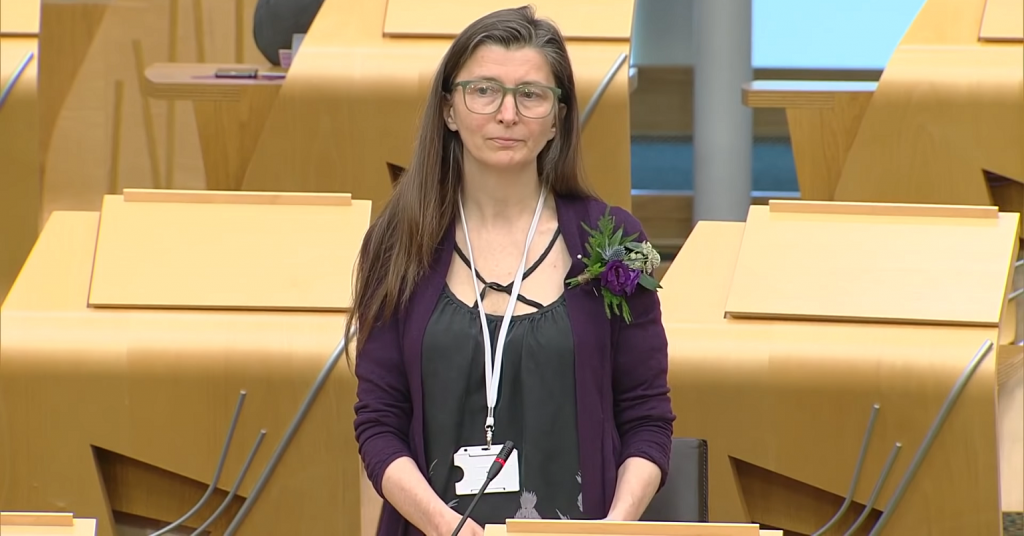If we're going to help save elephants, we need to get our own house in order
There is, doing the rounds, a petition against poaching elephants. I signed it. But I wanted to add this footnote.
I am not a cultural relativist. If something is wrong in one place, it is wrong in another. I think that hunting an animal to extinction is bad, and I think that’s true everywhere.
However, there may, of course, be differing factors in play in different places. So, for example, if a whole community will be less able to feed itself without the ability to hunt this animal, then we have to weigh that in our moral calculus. If a certain valuable culture will be lost, then that surely matters too. And we have to consider each oppression alongside every other one.
So, for example, there are indigenous peoples who traditionally hunt whales. These peoples have, in some places, suffered cultural genocide at the hands of Europeans – Europeans whose descendants today still benefit from this stolen wealth.
Many of those Europeans today also live in countries who made significant wealth from hunting whales to near extinction – and that wealth has been passed down the generations to us. So, for us to tell those indigenous communities that because of our ancestors actions in commercially hunting whales, they now cannot be allowed to maintain one of their valuable traditions – very low level whale hunting – would be seriously problematic.
And whilst I don’t know the extent of the history of Westerners hunting elephants in Africa (other than that it happened), it is certainly the case that our colonial history of telling people what to do needs to be remembered every time we sign a petition doing so.
In this context, then, we may be right to sign a petition to save elephants. But we must also remember that biodiversity is not – as we seem to be brought up to believe – unique to Far Off Lands Of Which We Know Little. A species isn’t more important because it is, to our eyes ‘exotic’. We are right to defend elephants from extinction. But if organisations like WWF are going to campaign to tell governments in the global south what to do with relation to elephants, why don’t they ever seem to do this with Western governments?

The most endangered big cat on earth is in Spain – the Iberian Lynx. The population dropped from 1100 in 1990 to about 100 in 2004. Why have I never been asked to sign a petition to the Spanish government? Similarly, Britain has destroyed much of its wilderness. But it could be restored, in places. Why do WWF not campaign to reintroduce wolves? bears? Eurasian Lynx? – or even beavers? If we expect Africans to to manage elephants, then why can’t we cope with our native species?

Hunting elephants in Africa to sell ivory in Asia is wrong. I am happy to support campaigns to ban it. But the failure of big wildlife charities in general, and WWF in particular, to push us to get our own houses in order ought to be a global embarrassment. It makes these campaigns look like modern colonialism, and ultimately, fails to secure a more biodiverse planet.





Hi Peter,
I don’t want to get into a slagging match about WWF – as I said at the outset, I am glad they are campaigning on elephants, and lots of other things.
However, a couple of things,
first, I don’t deny that they do some things on European biodiversity. But a quick look at their homepage shows where their focus is: http://www.wwf.org.uk/
second, I’m not asking that they have an agenda as broad as that of a political party – you are quite right that they can’t. I’m just saying that it’d be nice if they did a little more sometimes to put things in the West front and centre in their campaigns. I don’t think that’s about duplication. Whilst there are lots of people talking about individual species, the scope of WWF to change the public’s mind about something is huge. If they wanted, they could ensure that millions across Europe join a campaign to save the Iberian Lynx. No one else could do that in the same way.
finally, I think that if we want to save the planet and build a fairer world, we need to be able to talk about how we do so, and to give each other criticism sometimes. If we can’t do this, we’ve no hope of success.
@Dr Fash:
Interestingly, my dad wrote a book a few years ago about an experiment into how to restore Scottish highland habitats (which historically mostly weren’t moor, they were largely forest). It really isn’t as simple as ‘put a fence around it’.
Adam (getting it right now)
I chose the examples I did to illustrate WWF’s wide ranging nature of WWF’s campaigns. Of course they campaign on domestic biodiversity, especially with their work with schools and local government. Marine environment, including beaches, rivers, wildlife crime, etc. But in any case they were formed 50 years ago specifically to help conserve endangered species across the world – that was the raison-d’être of the charity so it is hardly fair to criticise them for doing so. There are hundreds of charities in the UK specialising in the preservation of every imaginable species of animals and plants from bats, butterflies, newts, hedgehogs to orchids. Why would you want WWF to duplicate that work?
WWF do magnificent work across the globe. They raise money from the developed world, who have already destroyed so much of their natural wealth, and use it to help people elsewhere from making the same mistake. Quite the opposite of colonialism.
These ill-informed and unjustified attacks on green organisations who are fighting on broadly the same agenda as the GP are enormously damaging and counterproductive in our struggle to make a better world. By their very nature their agendas cannot be as broad as a political party – you shouldn’t expect them to be.
The clock is ticking. Concentrate your not-inconsiderable communications skills on the real enemy – the climate change deniers, the planet wreckers, an endless list of bankers, industrialists, politicians, vested interests and so on and on and on. Focus on the really bad guys rather than picking holes in our potential and actual allies.
Domestic biodiversity is irrelevant when we’re talking about lowland forest or cloud forests in Asia and South America. Put a fence around a square mile of Scottish forest or moor and you pretty much preserve all the biodiversity. Totally different in Peru or New Guinea.
If we spend our time addressing “historic power relationships between peoples” we will preserve nothing. Ands species are disppaearing every day. Great work is being down in some of the most biodiverse areas on the planet but the politics of imperialism or whatever can come later. When it’s too late for the biodiversity, politics will be of no use to anyone. Self-loathing can be useful to us, but to insects and epiphytes it’s a timebomb.
Peter, (first, it’s Adam, not Adrian, we’re different people – I really don’t mind, just don’t want him to get the blame if I do stupid things).
secondly, I think that misses the point. I am not saying that they don’t campaign on anything in the UK. I am saying that they don’t seem to campaign much on domestic biodiversity in the UK (or other Western countries). Other than oceans, all of your examples are about ways we in the West can reduce our environmental destruction – which is a perfectly good thing to do. But it’s not what I’m talking about.
Dr Fash – sure. I don’t deny that. But if you only look at that, and ignore historic power relationships between peoples, then you risk making a fatal error.
Adrian, re your statement
“But the failure of big wildlife charities in general, and WWF in particular, to push us to get our own houses in order ought to be a global embarrassment.”
I urge you to visit the WWF website, where you will discover that they have an extensive array of ongoing domestic campaigns relating to transport, energy, food, fish, etc etc. They are working at all levels from schools to local and nat. govt pushing us to get our own house in order, and can cite many successful outcomes.
Take a look – you will be surprised!
Lose a hectare of rainforest and you lose many, many time more biodiversity than if you lose a hectare of Scottish forest.
That’s the basic premise.
Protect elephants in the Indian hill forests and you preserve many times more species than you do by stopping shooting wild cats. It’s that simple.
Nothing to do with moral superiority. It’s a fact of biology. And a basic one at that.
I truly seem to agree with every aspect that ended up being authored within “If we
“If we
“If we
Exactly where did you acquire the techniques to compose ““If we
“If we
“If we
Great article. Thanks Philip for helpful clarification on the meaning of cultural relativism. And Will for mentioning the wild cat. Thinking about Attenburgh’s recent series and a recent visit to Africa, I suppose a lot of people feel Africa is one of wildlife’s last refuges. Wild land is in a bad way in Europe (especially UK) and has been for centuries. While this is true it is also far too defeatist and we should fight against it at every turn. What is needed is ways of farming that can co-exist with wild land. And to stop people thinking its okay to kill predatory animals to protect sport shooting. (I learnt recently that gamekeepers – including young ones – are still killing wild cats in Scotland – even though we are down to the last 50!! Urgent education is needed on this matter.
Philip, apologies – in that case, I suppose I mean I am not an ethical relitavist. I learnt this terminology from philosophy lecturers who make no such distinction, but I am happy to accept your correction.
Will – yes, good point, I can’t believe I failed to mention wild cats! If we aren’t willing to push our own government to do what it takes to save them, what right have we to demand that others save species in their countries? (My parents had a family in their garden one summer a couple of years back, it was pretty exciting)
Very true. Putting our own house in order is I think particularly relevant in Scotland with regard to the Wild Cat. With probably less than 100 left, and these critically endangered by inter-breeding with domestic and hybrid cats, it is shocking that they are so little discussed, and that more efforts aren’t being made to protect them! They say 2013 will be the critical year for their survival (or not)…
Thanks for this – you make an important & valid point.
As an anthropologist, though, I wanted to say something about cultural relativism. You say you are not a cultural relativist. In fact you are, and there’s nothing wrong with that. ‘Cultural relativism’ is simply a methodology developed within cultural anthropology in the US in the 20s and 30s and refined over the years, and all it is saying is that in order to study something other – and often radically different, even incommensurably so – from what is familiar to us, we have to suspend immediate moral judgment and refrain from exclaiming ‘such and such a practice is disgusting/repugnant/immoral’, if, as we should, we wish to understand other societies/cultures (neither of these terms is entirely helpful) in their own terms, sympathetically and respectfully, without the assumption, all too frequently made, that we are morally superior. What cultural relativism is not is the stance that there are no absolute ethical standards and therefore anything goes – this is ‘ethical relativism’, not ‘cultural relativism’.
You practice cultural relativism perfectly well when you talk about certain indigenous peoples in the Pacific NW of N. America hunting whales, and how it would be colonialist of us to demand they cease – because here you are suspending your moral judgment (‘all killing whales is repugnant’) in order to better understand the context (as much socio-economic and political as ethical) in which these people occasionally kill whales. This is a classic example of cultural relativism in action, and very valuable it is too.
This may seem academic, but it isn’t, as ‘cultural relativism’ is frequently bandied about by defenders of human rights as an accusation against their opponents. In fact, a spot of cultural relativism is in order when examining the claims of human rights, or otherwise we end up going down the same neo-colonialist route you so correctly bemoan. At the same time, understanding the limits of cultural relativism – it’s a methodology, not an all-embracing ethical programme – means that we can make better, more self-aware, more closely targeted criticisms of human rights abuses across the world – and exit the tedious and misconceived debate of cultural relativism vs. universalism.